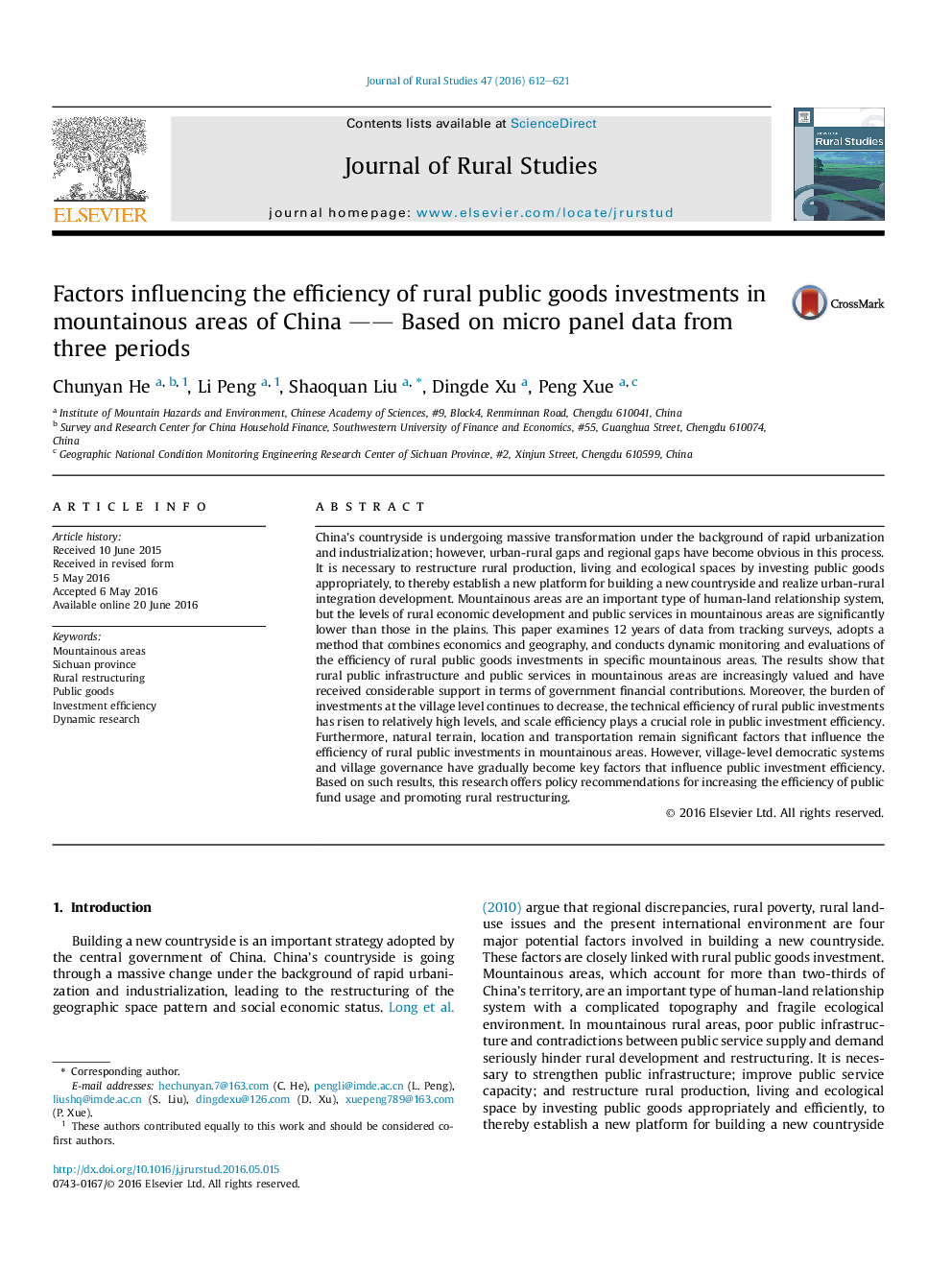| Article ID | Journal | Published Year | Pages | File Type |
|---|---|---|---|---|
| 6460184 | Journal of Rural Studies | 2016 | 10 Pages |
â¢This paper examines 12 years of data from tracking surveys in mountainous areas.â¢Rural public infrastructure and services have received support from government finance.â¢Scale efficiency plays a crucial role in public investment efficiency.â¢Natural terrain, location and transportation are significant factors of efficiency.â¢Village-level democratic systems and village governance have gradually become key factors.
China's countryside is undergoing massive transformation under the background of rapid urbanization and industrialization; however, urban-rural gaps and regional gaps have become obvious in this process. It is necessary to restructure rural production, living and ecological spaces by investing public goods appropriately, to thereby establish a new platform for building a new countryside and realize urban-rural integration development. Mountainous areas are an important type of human-land relationship system, but the levels of rural economic development and public services in mountainous areas are significantly lower than those in the plains. This paper examines 12 years of data from tracking surveys, adopts a method that combines economics and geography, and conducts dynamic monitoring and evaluations of the efficiency of rural public goods investments in specific mountainous areas. The results show that rural public infrastructure and public services in mountainous areas are increasingly valued and have received considerable support in terms of government financial contributions. Moreover, the burden of investments at the village level continues to decrease, the technical efficiency of rural public investments has risen to relatively high levels, and scale efficiency plays a crucial role in public investment efficiency. Furthermore, natural terrain, location and transportation remain significant factors that influence the efficiency of rural public investments in mountainous areas. However, village-level democratic systems and village governance have gradually become key factors that influence public investment efficiency. Based on such results, this research offers policy recommendations for increasing the efficiency of public fund usage and promoting rural restructuring.
